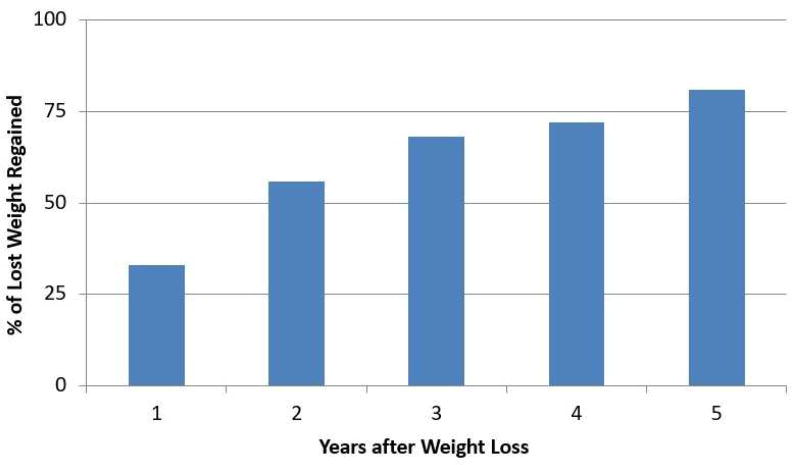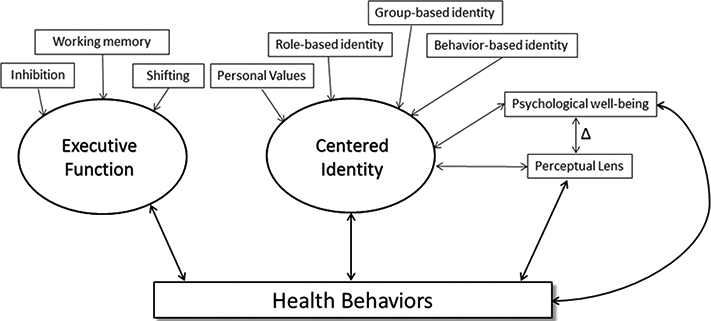The fitness industry’s favorite framework could be the reason you keep gaining the weight back
Key Takeaways
- Phasic language like “fat loss phase” and “maintenance phase” can reinforce the on/off diet mentality that leads to weight regain
- What works for athletes (like nutrition periodization) isn’t necessarily what works for sustainable weight loss in everyday life
- The behaviors that help you lose weight need to continue beyond reaching your goal weight, and phasic language have been a poor proxy to reinforce this
- Success comes from evolving as a person and learning how to make values-based decisions, not temporary phases with expiration dates
If you would’ve asked us 4-5 years ago what I thought about phasic language like “fat loss (or cut) phase,” “maintenance phase,” we would’ve thought it was great. But then we started reading actual research and textbooks on health behavior change and obesity and listened to lectures from world renowned clinical psychologists and researchers.
Experts—not coaches—developing frameworks, models, and theories related to building a health lifestyle that sticks.
Our takeaway: the language we use shapes how we think about our behaviors. And the popular phasic approach to weight loss might just be repackaged diet culture wearing a lab coat.
The Seductive Appeal of Phases (And Why We Fall for Them)
Before we examine why phases might be problematic, let’s acknowledge why they’re so appealing. Understanding the attraction helps us recognize what we actually need versus what just sounds good.
Structure Feels Safe
Phases break your journey into clear chapters. “I’m focusing on fat loss for 12 weeks, then maintenance.” It’s like having a GPS for your goals. The brain loves this kind of clarity because it reduces decision fatigue.
Time Limits Reduce Overwhelm
When goals have endpoints, they feel manageable. A “fat loss phase” sounds less daunting than “changing how I eat forever.” It simplifies daily choices: you’re either in deficit mode or you’re not.
It Mirrors Athletic Training
If you follow fitness influencers, you’ve seen how they periodize their training. Off-season, on-season, peak week. For athletes, this makes sense. But if you’re just somebody trying to keep 20 pounds off, that might be different.
The Promise of Relief
Phases suggest that the hard part is temporary. You won’t be in a deficit forever. You can cycle between effort and restoration. In theory, this prevents burnout.
Speaking the Same Language
When everyone uses these terms, it feels like you’re part of the club. It’s shorthand that makes you sound informed and serious about your goals.
The Hidden Cost of Thinking in Phases
Despite these appealing reasons, phases aren’t delivering the long-term results people need. According to research, most people regain lost weight within 2-5 years. It’s our professional opinion the phasic approach might be part of the problem.

Reinforcing the On/Off Mentality
Remember the “on the wagon, off the wagon” thinking that diet culture taught us? Phases may just be a sophisticated version of the same patter
When you’re in a “fat loss phase,” you’re “on.” When you hit maintenance, the structure disappears overnight, and it’s not quite intuitive or obvious how to act, and that’s where many experience regression in the behavior changes they were making.
This binary thinking doesn’t prepare people for real life, where you need to navigate birthdays, holidays, stress, and changing circumstances without a phase or weight loss goal to tell you what to do.
Research on weight maintenance shows that successful maintainers don’t think in terms of being “on” or “off” a plan. Rather than needing to follow a plan, they’re able to “live it.”
The Maintenance Myth
Here’s what nobody talks about: most of the behaviors that help you lose weight need to continue in some form to maintain that loss. The calorie deficit ends, but the awareness, your physical activity habits, the meal planning? Those aren’t temporary.
At Hard House, we see this confusion often. People may logically know that returning back to over-eating isn’t helpful, but it inevitably happens as life ebbs and flows.
Phasic language implies there’s an expiration date with being “on.” When the phase ends, then what? Most people don’t have an answer beyond “eat at maintenance calories,” which is about as helpful as telling someone to “just be healthy.”
Missing the Identity Piece
Fat loss phases focus on the observed: scale weight, measurements, what you’re eating, and how much. But sustainable change requires inside transformation.
Who are you becoming through this process? What values are driving your choices? How does this align with the life you want to live? What are your motives for losing weight? Are they extrinsic or intrinsic?
These questions matter because research consistently shows that identity-based behavior change sticks while outcome-based change doesn’t. When you see yourself as “someone in a fat loss phase,” this doesn’t automatically shift your identity to someone who naturally maintains a healthy weight.

The Athletic Fallacy
According to Healthy People 2030, 75% of adults aren’t meeting basic physical activity guidelines. Yet we’re using training methodologies designed for athletes who need to peak for competition?
Athletic methodologies like training cycles, extreme optimization (listed below), and intensive data monitoring are designed to maximize competition performance. They’re not created for general health or long-term adherence.
Behaviors considered “extreme” for lay people (non-athletes) include:
- Structuring training in elaborate cycles (bulking, cutting, peaking, deloading) without being a competitive athlete
- Tracking every meal and nutrient to “optimize” macronutrient timing and micro-cycles (e.g., cycling carbs/fats, “anabolic windows”) rather than eating for overall health or enjoyment
- Using athlete-level supplements and recovery modalities (e.g., cold plunges, advanced supplementation), regardless of actual training load
- Doing multiple daily workout sessions or adopting competitive athlete schedules while holding down a regular job and have only weight-related goals
Unless you’re stepping on stage or competing in a sport, you don’t need phases. You need to develop intrinsic motivation and behavior change skills that work with your actual life, not an optimization strategy.
What Actually Works for Long-Term Success
If phases aren’t the answer for most people, what is?
Building a Lifestyle, Not Following a Phase
Successful weight maintenance isn’t about well-executed phases. It’s about developing eating and movement patterns that ebb and flow with you in different seasons of life. This means learning skills like:
- Recognizing and responding to hunger and fullness cues
- Making values-aligned food choices without rigid rules
- Having the wisdom of when to say yes to eating and when to say no
- Navigating social situations and special occasions
- Managing stress without using food as the primary coping mechanism
- Building interoceptive awareness (the ability to sense and respond to internal body signals)
- Practicing body functionality appreciation (valuing what your body can do, not just how it looks)
- Developing flexible restraint instead of rigid control around food
- Cultivating self-compassion when you eat differently than planned
- Creating weight-neutral health behaviors that you’d maintain regardless of the scale
These aren’t phase-specific skills. They’re life skills.
Identity Change Over Outcome Chasing
Instead of “I’m in a fat loss phase,” consider: “I’m someone who takes care of my health.” Instead of “I’m cutting for summer,” try: “I’m learning to fuel my body in a way that supports my goals and values.”
This isn’t just feel-good language or semantics. If your mindset is the lens through which you see the world, it makes sense that your identity and self-image are the bus, and your thoughts are the driver.
Psychological Flexibility Over Rigid Phases
Real life doesn’t happen in neat 12-week blocks. You need an approach that can handle vacation, work stress, family drama, and unexpected cupcakes in the break room. Any weight loss programs or coaching service that doesn’t include opportunities to build the skills you need in these areas have a gaping hole in what they’re offering you
Self-Assessment: Is Your Approach Setting You Up for Success?
Take a moment to reflect on these questions:
Your Current Mindset:
- Do you think of your eating as “on plan” or “off plan”?
- When you imagine reaching your goal weight, how do you picture you’ll continue eating?
- Do you know how to eat to support your bodies needs (e.g., not under-eating, not over-eating, etc.)
- Do you only feel in control if you have rules or structure to follow?
- How confident do you feel in your abilities to adapt when your eating plans change?
Your Relationship with Phases:
- Have you done multiple “phases” but ended up back where you started?
- Do you feel lost or anxious when you’re not in a structured phase?
- Do you find comfort in being “told what to do” as opposed to trusting in yourself to make the best/supportive decision in the moment?
- Do you “throw in the towel” or commit to start again on Monday when a wrench in thrown into your week?
Your Identity and Values:
- What are your strengths that will help you change your eating and exercise habits so that you can maintain lost weight? What areas have room for improvement?
- Do you feel in tune with your personal values and make decisions accordingly?
- Would you continue working on health behavior change even if the scale stopped moving or your body didn’t change?
- Looking at how you eat and move when you’re losing weight, is it reasonable to expect yourself to keep up with them long-term?
If these questions revealed some gaps in your approach, you’re not alone. Most of the fitness industry is teaching tactics that aren’t useful or effective for the majority of people.
Who Actually Benefits from Phases?
Let’s be clear: phases aren’t inherently bad. They’re a tool, and like any tool, they work well for specific purposes.
Phases make sense for:
- Competitive athletes who need to peak for events
- Advanced trainees who have already mastered the basics
- People how have a positive relationship with food and positive body image
- Those working on specific performance goals beyond general health
- People who aren’t struggling with disordered eating.
At Hard House, we use phasic language with a subset of clients who fit in these boxes. But most people aren’t there. Most people need to support in making lifestyle changes that last.
Moving Forward: Your Next Steps
If you’ve been stuck in the phase cycle gaining and losing the same weight, it’s time for a different approach.
Start by shifting your language:
- Instead of “I’m in a fat loss phase,” try “I’m developing healthier eating patterns”
- Replace “When this fat loss phase ends” with “As I continue building these skills”
- Swap “I’m on/off plan” for “I’m making choices that align with my goals”
Focus on skills over outcomes:
- Learn to recognize true hunger versus other eating triggers
- Practice making food decisions based on how you want to feel and guided by your values
- Learn eating skills that help you maintain physical and mental well-being (e.g., emotional regulation, urge surfing, cravings management, building a healthful plate, getting enough fiber, vitamins and minerals in your diet, including indulgences from time to time)
Think long-term from the start:
- Every behavior you adopt to lose weight should be something you can imagine continuing
- Every behavior you include should provide you benefits beyond weight loss (e.g., cardio is important for overall health, not just for it’s calorie burning)
- Your weight loss plans should have the thought of maintenance embedded into it
The Bottom Line
The fitness industry’s obsession with phases might be keeping you stuck in the cycle of cutting/maintaining/bulking. Real success doesn’t come from perfectly executed fat loss phases followed by vague maintenance periods. It comes from building a sustainable lifestyle that supports your health, motivation, and well-being.
When you’re ready stop wanting time with cycles and learn how to actually make changes that stick, that’s exactly what we help with at Hard House. Our coaching staff focuses on the skills, mindset, and identity shifts that create permanent change and not temporary results.
When you’re ready to start, it takes 2 minutes to complete an application. Click here to get started.
